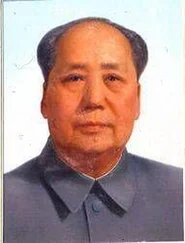ʹIf you say so...ʹ D'Artagnan would have liked to be convinced by Rochefort. But it still felt like a punishment, not a strategic advantage, especially since there was another problem besides his personal difficulties with the red guard. ʹThe cardinal seems to be seriously ill.ʹ
ʹIndeed. This time it is more than simple exhaustion or a cold.ʹ
ʹDo you fear the worst?ʹ
The stable master shook his head at a loss. ʹIt is hard to estimate.ʹ
ʹI see. That makes it difficult to judge when my deadline for this assignment is going to expire.ʹ D'Artagnan hesitated. ʹAnd whether our agreement dies with Richelieu.ʹ
ʹIt is in your papers.ʹ Rochefort pointed at the letter. With a frown, d'Artagnan took it and read it thoroughly. In the end, he found a sentence in such a roundabout way that its meaning was not immediately clear to him. After he had read it a few more times, trying not to silently move his lips while Rochefort was watching him, he looked up. ʹThe convocation already contains the promise of promotion?ʹ
ʹUnder special conditions and after a reasonable period of service.ʹ
ʹHa! Neither what is reasonable, nor what these special conditions are, is written down here.ʹ
ʹIt is for His Eminence to judge.ʹ
ʹThe dead make no more judgements.ʹ
ʹNo, but his successor will. You may assume that this man would also appreciate a loyal vassal.ʹ
D'Artagnan was not very satisfied with these uncertain prospects, even though he could always refer to Richelieu's letter and seal in the future. ʹIn fact, you are telling me I should better hurry.ʹ
ʹThat would be in everyone's best interests, no matter the health of His Eminence.ʹ
ʹBut not in the best interest of the sought-after Odette de la Nièvre,ʹ d'Artagnan mocked, and at the same time he was curious what exactly had happened. She seemed to be a headstrong, adventurous mademoiselle. Certainly she was confident enough to resist her own family. Courageous? D'Artagnan's thoughts wandered back to last night, back to the house they had climbed into on the run. Back to that young woman with the pistol. How determined she had encountered him. ʹDoes she happen to have copper-coloured hair and green eyes?ʹ
Rochefort frowned, obviously confused by the very specific question. ʹNo.ʹ
ʹWould have been too easy anyway,ʹ d'Artagnan mumbled and changed hastily the subject when he noticed the other's doubtful gaze. ʹThen what does she look like?ʹ
Fortunately, Rochefort did not dig deeper. Instead, he reached into the inside pocket of his coat. D'Artagnan was given a miniature, the image of a young woman of perhaps twenty years of age. The artist had not wasted much effort on details and had chosen for the portrait the typical pose held sideways, with the head slightly turned towards the viewer, but her gaze still directed past him. Blonde hair was pinned into an elaborate braid, a curl fell over her bare shoulder of flawless alabaster skin. Her face was full, almost roundish, soft and feminine, her eyes of indeterminate colour with a shine that made her seem almost angelically removed from the world. The mademoiselle was, well... standard-pretty and characterless.
ʹIs it her, or one of the many other interchangeable court ladies, and you want to put me to the test?ʹ d'Artagnan asked while studying the miniature in detail and still could not discover any conspicuous features on the person herself. No beauty spots or other blemishes, nothing that would have made her naturally memorable. Instead she wore two gem-set signet rings on her delicate fingers. D'Artagnan could not make out more than blots of colour, but he suspected that these were the family crests and insignia of those of la Nièvre and du Plessis - if the portrait did indeed show him a daughter of these houses.
ʹThis is Mademoiselle de la Nièvre.ʹ
ʹShe seems to be... boring.ʹ
ʹMaybe that is why no one expected her to successfully run away twice.ʹ
D'Artagnan placed the portrait with the documents on the clothes chest. ʹIs that all you have for me? Tell me the whole story! You already said that she was not abducted. How can you be so sure about that?ʹ
ʹBecause her fiancé did indeed attempt a raptio and failed spectacularly.ʹ The incredulous expression on d'Artagnan's face almost made the stable master laugh. ʹYes, to climb into the cardinal's palace of all places, offended in one's own honour, in order to abduct an unwilling woman was at best ill-considered. It could have been an idea of yours.ʹ
ʹI asked for the story, not for your comments,ʹ d'Artagnan growled. ʹWho is this fiancé and what happened?ʹ
ʹFernand de Grinchamps.ʹ Rochefort watched his friend attentively, almost lurking. With irritation, d'Artagnan replied, ʹShould I know the name?ʹ
ʹObviously not.ʹ The stable master seemed strangely relieved for a brief moment, but d'Artagnan was unsure of his assessment, especially as Rochefort quickly added an explanation and distracted him. ʹHe is a young baron who thought he had to obtain justice by himself. The guardsmen foiled the abduction. A lackey and a friend of Grinchamps were arrested.ʹ
ʹHurray to my new comrades!ʹ
ʹUnfortunately, Grinchamps has escaped preliminary and gone into hiding himself.ʹ
ʹI take back all praise.ʹ
ʹWho is commenting now, d'Artagnan?ʹ
The former musketeer waved off. ʹSo Grinchamps failed, and yet Mademoiselle de la Nièvre has vanished.ʹ
ʹA few days after that incident, yes. Either she no longer felt safe enough in the palace or she realised that Richelieu had his own plans for her, too.ʹ
ʹI assume that His Eminence was now looking for a more agreeable marriage candidate than Grinchamps was.ʹ
ʹIt was an obvious decision. This family affair was becoming more than tiresome. Someone must have told Odette. Someone must have helped her to leave the palace unrecognised. But she is still in Paris.ʹ
ʹAre you also sure about that or just hoping that she has not left the town already?ʹ D'Artagnan did not expect an answer to that. Rochefort had his ways and means of investigating in the outskirts of Paris and so he continued, ʹI should search for that 'someone'.ʹ
ʹThis is part of your task, indeed. It should be easier for you if you can win the trust of the guardsmen.ʹ Rochefort raised a hand before the friend could react to it again with wicked sarcasm. ʹOne thing at a time. Rearrange your life, if you find out something useful incidentally, tell me about it.ʹ
D'Artagnan burst out laughing. ʹYou, of all people, talk about rearrangement although the cardinal's household is apparently in great disarray! Now, moreover, you are infiltrating red guard with a spy. I hope you are aware of what you are requesting.ʹ
ʹI know that I am not asking too much and that you secretly eager for this task, for new deeds.ʹ Rochefort rose and strolled to the door, followed by a sinister look from his friend. ʹSo do not expect me to visit you every day to pat your back soothingly.ʹ
The gesture that Rochefort thereupon received by d'Artagnan expressed more than any words of farewell.
Sorel hurried along the gallery in great haste and evaded a door at the last moment. ʹPardon me!ʹ he called over his shoulder while the curses of a valet pursued him. How bloody huge the cardinal's palace was if one was in a hurry!
ʹWatch out!ʹ The warning cry was meant for a comrade who was about to turn the very same corner, which Sorel sprinted around. ʹGonna be late!ʹ he shouted apologetically and ran on. His footsteps echoed loudly through the corridors; in the early morning he was one of the few people who were already on their feet. He started to sweat gradually and had yet to cross another gallery to the cardinal's study.
Читать дальше












